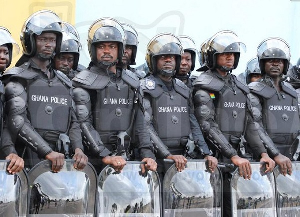Debt of the insolvent National Railways of Zimbabwe (NRZ) astronomically rose from US$314 million in 2017 to US$575 million in 2018, fuelled by unpaid employee salaries and mounting arrears owed to various creditors, the entity's latest financial statement shows.
Bank and cash balances stood at US$2 149 468. Compounding the rail operator's debt woes is a looming US$215 million lawsuit, arising from the controversial termination of the US$400 million NRZ recapitalisation tender which was won by the Diaspora Infrastructure Development Group (DIDG) in 2017.
Last year, cabinet, at the behest of Transport minister Joel Biggie Matiza, reversed the DIDG multi-million dollar tender, which had attracted the interest of various regional banks with a capital of US$1 billion to inject into NRZ.
According to the rail operator's financial statement for the year ended December 31, 2018 announced on June 5, 2019, the embattled state enterprise posted a net loss of US$43 782 929, casting doubt on its going concern status.
The financial statement was prepared by HLB Zimbabwe Chartered Accountants."We draw your attention to the fact that the National Railways of Zimbabwe is in a net current liability position of US$286 427 125. The Railways also incurred a net loss of US$43 782 929, contributing to an accumulated loss of US$431 976 333.
"This accumulated loss and net current liability position, alongside with other matters... indicate the existence of a material uncertainty that may cast significant doubt over the Railway's ability to continue as a going concern, our opinion is not modified in this matter," the statement reads.
During the comparative period last year, the NRZ posted a US$51 992 503 loss owing to a myriad of challenges choking the state enterprise.
The NRZ's mounting debt woes come at a time the rail operator recorded its lowest freight volumes in history, which plunged to 2,8 million tonnes, missing the set 2019 target of 4,2 million tonnes.
The drop in freight movement was due to NRZ's shambolic rail network.However, when the moribund parastatal forged the recapitalisation agreement with DIDG, subsequently receiving 200 wagons, 13 locomotives and seven coaches from the South African consortium, the entity's freight volumes improved markedly in 2018, only to dip in 2019 when negotiations to seal the deal were stymied by Matiza.
As reported by this newspaper in its exclusive series of the aborted recapitalisation deal, Matiza has been manoeuvring to block the DIDG bid in favour of a Dubai based firm, Feonirich Investments.
According to the parastatal's financial statement, remuneration for the entity's directors, which include directorship fees and short-term benefits soared to US$697 312 from US$636 252 in the previous year.
The beleaguered state enterprise has also defaulted on its tax obligations, attracting punitive measures from tax authorities."NRZ has not been remitting Value Added Tax (VAT) and Pay As You Earn(PAYE).The balances due for VAT and PAYE as at year end are US$21 161 036 and US$91 283 575 respectively. The penalties on the outstanding balances have not been ascertained.
However, considering the significance of the outstanding amounts, the penalties are likely to be material," the financial report shows. NRZ is also battling a number of labour disputes in the courts, with the rail operator set to lose US$3 354 000 if the ruling is not in its favour.
Ironically, the report reveals that the DIDG multi- million dollar bid, among other factors could potentially keep NRZ afloat despite its gargantuan debt.
"Management contends that the organisation will continue as a going concern. The assumption is supported by the following developments:
"Negotiations between NRZ and Transnet-DIDG for the US$400 million recapitalisation of NRZ are still ongoing and as at December 31, 2018 parties had reached common base on the base case financial model for the project.
"In addition... due diligence between parties had reached advanced stages and it is anticipated that parties will conclude negotiations in the third quarter of 2019,"reads the financial report.
However, the DIDG bid ended up being revoked in the third quarter of 2019.
Africa News of Saturday, 11 January 2020
Source: allafrica.com













